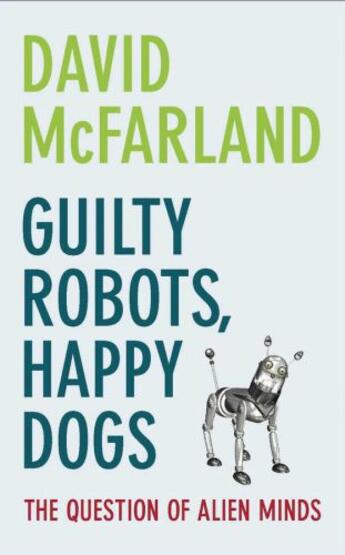-
Nombre de pages : (-)
-
Collection :
(-)
-
Genre :
(-)
-
Thème :
Non attribué
-
Prix littéraire(s) :
(-)
Résumé:
When we interact with animals, we intuitively read thoughts and feelings into their expressions and actions - it is easy to suppose that they have minds like ours. And as technology grows more sophisticated, we might soon find ourselves interpreting the behaviour of robots too in human... Voir plus
When we interact with animals, we intuitively read thoughts and feelings into their expressions and actions - it is easy to suppose that they have minds like ours. And as technology grows more sophisticated, we might soon find ourselves interpreting the behaviour of robots too in human terms.
It is natural for us to humanize other beings in this way, but is it philosophically or scientifically justifiable? How different might the minds of animals or machines be to ours? As David McFarland asks here, could robots ever feel guilty, and is it correct to suppose your dog can truly be happy? Can we ever know what non-human minds might be like, or will the answer be forever out of our reach?
These are central and important questions in the philosophy of mind, and this book is an accessible exploration of the differing philosophical positions that can be taken on the issue. McFarland looks not only at philosophy, but also examines new evidence from the science of animal behaviour plus the latest developments in robotics and artificial intelligence, to show how many different - and sometimes surprising - conclusions we can draw about the nature of 'alien minds'.
Donner votre avis















